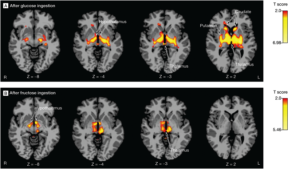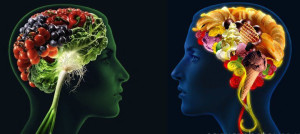Research goals and focus
Dr. Page researches how health conditions such as obesity and diabetes are impacted by the functions of the brain. Specifically, Dr. Page is interested in understanding how the brain regulates appetite and eating behavior, and in identifying early life determinants of obesity, diabetes and cardiovascular disease. An example of these determinates is how exposure to diabetes in utero may lead to an increased risk for obesity and type 2 diabetes.
Recent projects
The American Diabetes Association awarded Dr. Page a prestigious Diabetes Research Accelerator Award as a part of the ADA’s bold initiative, “Pathway to Stop Diabetes.” As a result of the award, Dr. Page is researching the impacts of in utero exposure to diabetes on the likelihood of children developing obesity and Type 2 diabetes later in life. Through this research, Dr. Page hopes to better understand how environmental factors impact development of brain pathways that are important in the control of body weight and sugar levels in the blood. Ultimately the goal is to develop strategies to prevent or counteract certain developmental exposures early in life.
 A current National Institute of Health funded project is aimed at understanding the effects of exposure to maternal gestational diabetes on risks for obesity, diabetes and cardiovascular disease in children. To date, an excess of obesity in children who were exposed to maternal diabetes in utero has been demonstrated. Detailed metabolic studies of adipose tissue biology, insulin resistance and insulin secretion in the children are now being conducted. In addition to funding from the NIH, this work is supported by and grants from the American Heart Association and Robert E. and May R. Wright Foundation.
A current National Institute of Health funded project is aimed at understanding the effects of exposure to maternal gestational diabetes on risks for obesity, diabetes and cardiovascular disease in children. To date, an excess of obesity in children who were exposed to maternal diabetes in utero has been demonstrated. Detailed metabolic studies of adipose tissue biology, insulin resistance and insulin secretion in the children are now being conducted. In addition to funding from the NIH, this work is supported by and grants from the American Heart Association and Robert E. and May R. Wright Foundation.
 A recent project on brain appetite regulation focused on determining how high-reward foods, such as sugar, impact the areas of the brain that regulate appetite and food intake. Two types of sugar, glucose and fructose, were examined in this study, and findings to date show that the brain reacts differently to these two types of sugar. Functional magnetic imaging (fMRI) was used to show that lean adults felt more satiated and had decreased activity in the regions of the brain that regulated activity when they consumed glucose, not but fructose.
A recent project on brain appetite regulation focused on determining how high-reward foods, such as sugar, impact the areas of the brain that regulate appetite and food intake. Two types of sugar, glucose and fructose, were examined in this study, and findings to date show that the brain reacts differently to these two types of sugar. Functional magnetic imaging (fMRI) was used to show that lean adults felt more satiated and had decreased activity in the regions of the brain that regulated activity when they consumed glucose, not but fructose.
These findings suggest that while glucose suppresses brain activity in regions that promote the desire to eat, fructose may promote overeating through its inability to effectively suppress the desire to seek out food (Page et al, JAMA 2013 [PubMed]).
 Additionally, Dr. Page and team found that obese young adults reported more hunger and a greater desire to eat when they viewed pictures of high-calorie foods such as chocolate cake (Luo et al., Obesity 2013 [PubMed]). These images triggered the appetite and reward centers in the brain, and these neural and behavioral responses to high-calorie food stimuli may promote eating. Dr. Page and team are currently conducting additional studies on people’s reactions to dual stimulation of food images and sugar intake. These studies have important public health implications in a society that is inundated with high-sugar foods and tantalizing food stimuli.
Additionally, Dr. Page and team found that obese young adults reported more hunger and a greater desire to eat when they viewed pictures of high-calorie foods such as chocolate cake (Luo et al., Obesity 2013 [PubMed]). These images triggered the appetite and reward centers in the brain, and these neural and behavioral responses to high-calorie food stimuli may promote eating. Dr. Page and team are currently conducting additional studies on people’s reactions to dual stimulation of food images and sugar intake. These studies have important public health implications in a society that is inundated with high-sugar foods and tantalizing food stimuli.
Areas for future research
 Dr. Page is interested in continuing to research how the brain regulates eating behaviors, and how certain health conditions, such as diabetes and obesity, are linked to early brain development. Dr. Page is interested in continuing research on how the brain impacts development of certain diseases and predicts health-related behaviors.
Dr. Page is interested in continuing to research how the brain regulates eating behaviors, and how certain health conditions, such as diabetes and obesity, are linked to early brain development. Dr. Page is interested in continuing research on how the brain impacts development of certain diseases and predicts health-related behaviors.
You can read Dr. Page’s latest blog post[latest-post]. Contact Dr. Katie Page [drkatieapage-email] about research or speaking engagements or contact the Page Lab team here.
